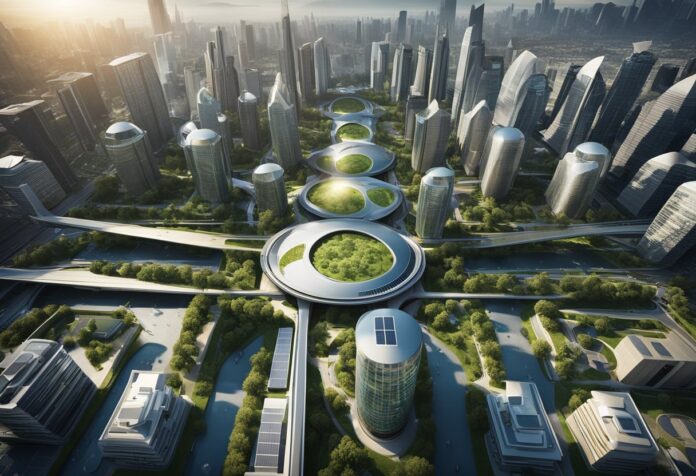
By 2030, the world will most certainly have undergone significant changes, both in terms of technology and culture.
Namely, the rapid advancement of technology will make its biggest gains in the last 20 years.
So let’s see which trends will continue, which will discontinue, and how will everything play out.
One major trend that is likely to continue into 2030 is the increasing integration of technology into our daily lives.
Smart homes, self-driving cars, and virtual reality are just a few examples, and these trends are only expected to speed up in the coming years.
As technology becomes present everywhere, it will also become even more personalized, with devices and services customized to individual needs and preferences.
This rapid advancement and personalization will have many negative aspects as a society will become even more isolated and people even more asexual (we’ll cover that in detail in one specific chapter).
Another area that is expected to see major changes by 2030 is the job market.
Automation and artificial intelligence are already changing many industries, and this trend is only expected to continue.
Many jobs will become obsolete and while new ones will also emerge, this will not happen at the same pace.
Namely more jobs will be lost than new ones created.
The gig economy will step in here, with more people working freelance or contract jobs rather than traditional 9-to-5 positions.
This will in turn require a complete change of the current economic, career, and retirement model.
Perhaps not by 2030, but most certainly in the next 20 years, the whole economic model will need to change or it will go bust completely and in front of our eyes.
And so, let’s dive deep into most aspects of our lives and society in the year 2030.
Interesting fact: According to Dell report, 85% of those currently employed will be engaged in completely new occupations by 2030.
Population Numbers and Trends
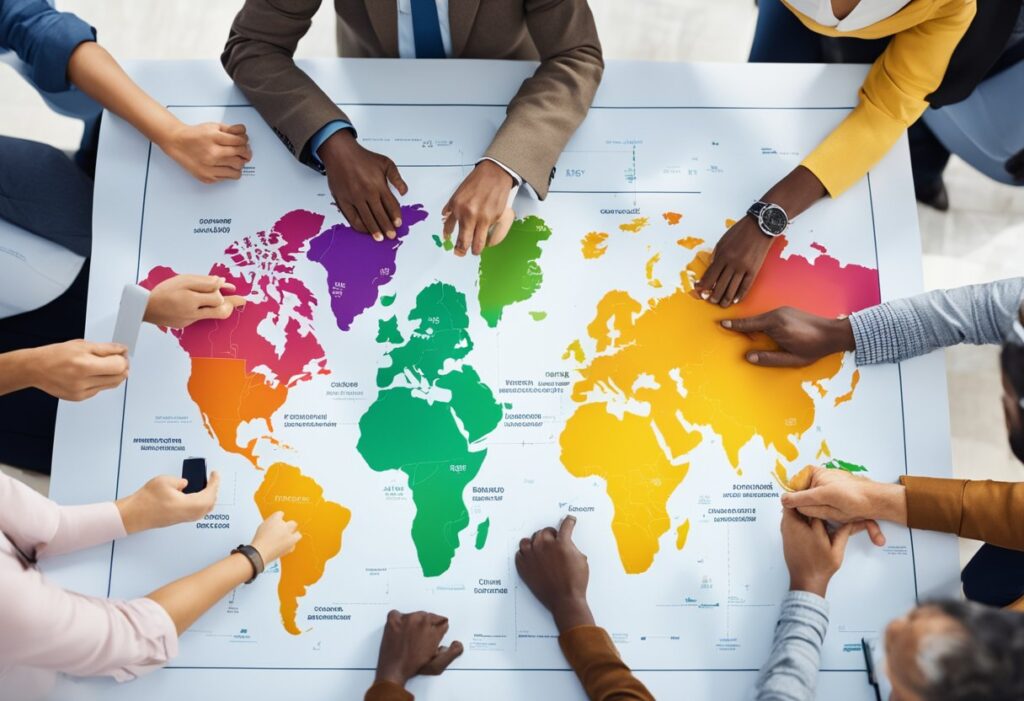
The world’s population is projected to reach 8.5 billion by 2030, an increase of approximately 400 million from the time of writing this article.
This growth will most likely be driven by developing countries, predominantly in Africa and Asia.
India overtook first place from China already in 2023, and it is expected that it will maintain this position by 2030.
On the other hand, as we’ve witnessed in recent years and decades, developed countries will continue to experience population decline, especially Japan and countries in Western Europe.
Consequently, due to the aging population, it is estimated that one in six people in the world will be over the age of 65 by the year 2030.
This is concerning from many different aspects, particularly since society thrives only if everything is growing constantly, including the population.
If the population declines, everything else will most likely decline. Hereby, of course, we’re thinking about the economy.
Everybody knows that we’ve built a world where the main expectation is constant growth.
Basically, in modern society, no growth for several quarters means big problems.
And, while some people argue that overpopulation is the world’s problem, others, like Elon Musk, think that population decline is one of the biggest problems for humanity and society overall.
We’ll see who is right – but certainly, declining birth rates in modern countries are the real problem that humanity has never faced before.
Not naturally, at least.
In history, there have been many population declines because of wars or epidemics, but not because people deliberately decided not to have children.
Interesting fact: According to the United Nations, the world's population is projected to reach 9.7 billion by 2050.
Technological Progress by 2030
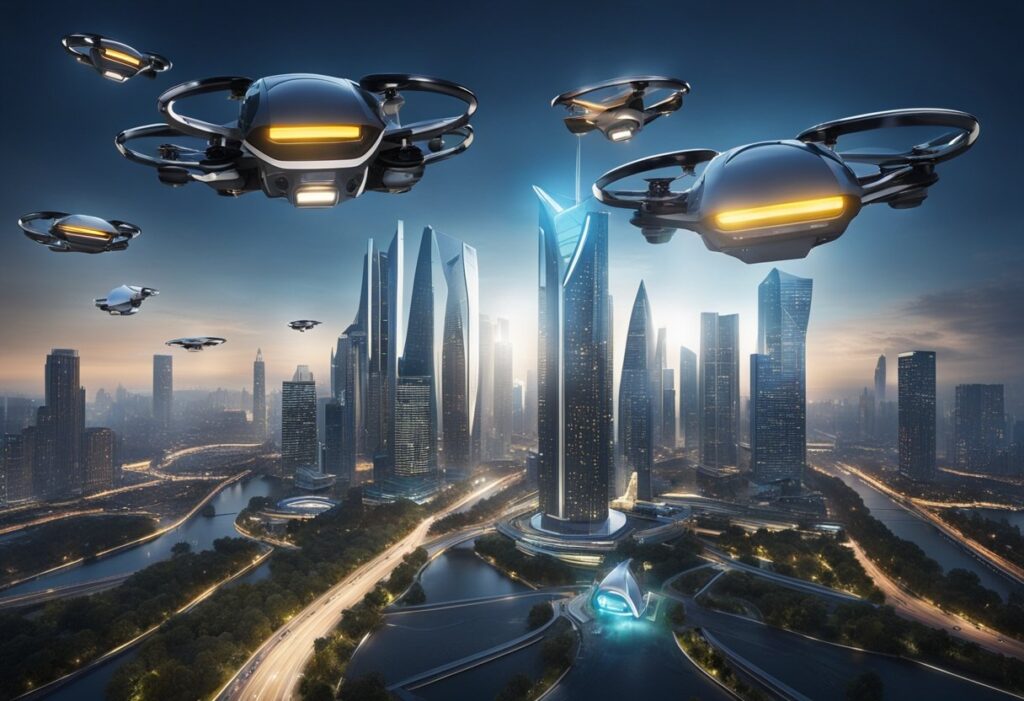
Artificial Intelligence
In 2030, Artificial Intelligence (AI) will become much more advanced than today.
AI will be much more integrated into various aspects of daily life, from smart homes to self-driving cars.
By 2030 we will most certainly have ChatGPT 5.0 and most likely 6.0 or even 10.0 if they continue the same nomenclature.
That means that AI models will be 1000x if not 1000000x smarter than they are today. This will in turn have massive repercussions in every segment of our lives.
Sure, there are only several years before we pop champagne to celebrate 2030 and the adoption takes time, but we can be certain that AI will lurk its way into everything in our society.
We’ll discuss more details about that in the chapters below.
Interesting fact: By 2030, AI is expected to contribute up to $15.7 trillion to the global economy.
Quantum Computing

Quantum computing will be a game-changer in many industries.
With its ability to perform ultra-complex calculations at an unparalleled speed, quantum computing will revolutionize fields such as finance, logistics, and cryptography.
In 2030, it is expected that quantum computing will become more accessible to businesses and researchers, leading to new advances in science and technology.
Interesting fact: In 2019, Google claimed to have achieved "quantum supremacy" by performing a calculation that would take the world's most powerful supercomputer 10,000 years to complete, in just 200 seconds.
Virtual Reality

By 2030, (un)fortunately, virtual reality (VR) will become much more advanced.
Why do we say – unfortunately?
Well because it could have many negative aspects on individuals.
Namely, if virtual reality becomes affordable enough, people will be staying in their houses the whole day playing games or “socializing” with their virtual lovers.
Yes, by 2030, virtual AI girlfriends and boyfriends will become much more prevalent.
This could in turn completely change human interactions for the worse. Especially in young people.
On the other hand virtual reality will be very helpful in many fields of education, engineering, medicine, etc.
Will it have a more beneficial impact on society or a very negative one – we’ll see.
Most likely, in the long run, it will have a negative impact on social connections and mental health.
In the same way social networks have a negative impact on people’s depression.
Just magnified by 100x in the case of virtual reality.
Sexlessness in 2030
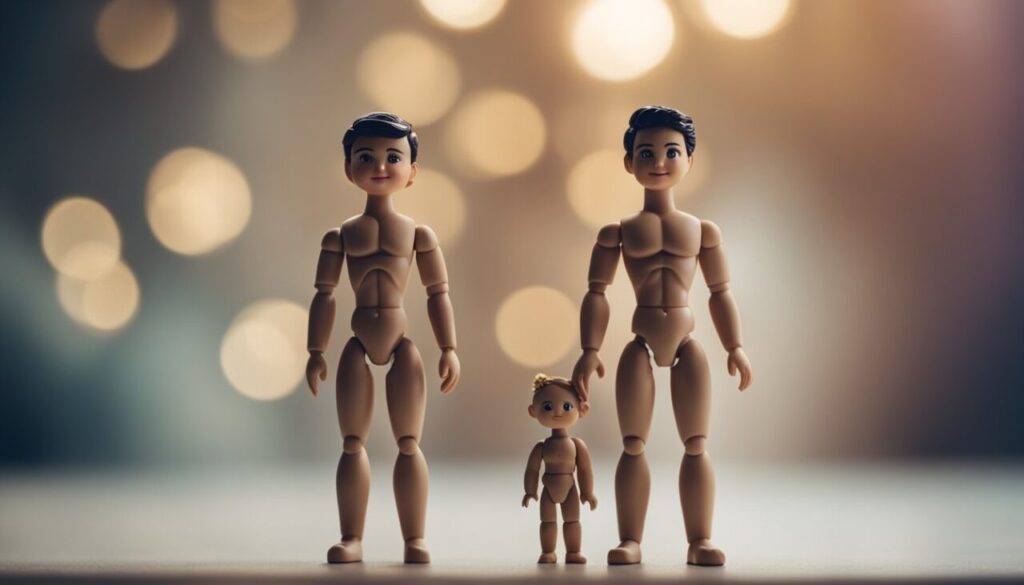
In 2030, sexlessness will unfortunately become a more common trend.
With the rise of virtual reality, many people will decide to fulfill their sexual and romantic desires without the need for physical contact.
Additionally, advancements in artificial intelligence and robotics will lead to the creation of more realistic sex dolls and robots, which could further contribute to the decline in sexual activity between humans.
Note: We extensively addressed this issue in our article, 'What Will Sex Robots Do To Humanity?'"
Statistics are unbelievable in this aspect (romantic relationships & sexuality).
Let’s just look at a couple of examples:
- Recent Pew research indicates that over 60% of young men are currently single!
- Men have been experiencing a stark decrease in testosterone levels for nearly 50 years!
- The number of sexless men has tripled in 10 years!
- Forty-four percent of Gen Z men today report having no relationship experience at all during their teen years!
- Men in their 20s are more likely than women in their 20s to be romantically uninvolved, sexually dormant, friendless, and lonely!
- Just over half of Americans between the ages of 18 and 34 said they do not have a steady romantic partner!
And so the conclusion is simple:
If this is happening already at an accelerated rate each year it will continue happening by the year 2030 and many years (and decades) after that.
Interesting fact: According to a study conducted by the University of Chicago, the percentage of adults who reported having no sex in the past year has been increasing steadily since 2008, with a significant increase in the number of young adults reporting no sexual activity.
Economic Changes by 2030

Emerging Markets
In 2030, the global economy will have undergone big changes, with emerging markets playing a more important role.
Countries such as India, China, and Brazil will continue to experience high economic growth, leading to a shift in the balance of power.
This growth will be driven by several factors, including increased investment in infrastructure, rising consumer demand, and advances in technology.
As a result, these countries will become major players in global trade and will exert greater influence on the world stage.
According to Bloomberg Economics, Chinese GDP will overtake the USA’s GDP in 2040’s, however, this might happen even earlier perhaps in the early 2030’s.
This will, of course, all depend on current wars and disturbances in the world.
Global Trade
The global economy will continue to be shaped by trade, with the rise of emerging markets leading to new patterns of commerce.
In 2030, the world will be more interconnected than ever before, with trade flows becoming increasingly complex.
One of the key drivers of this change will be the growth of e-commerce, which will enable businesses to reach new markets and consumers to access a wider range of products.
This will lead to increased competition and greater efficiency in global trade.
Interesting fact: By 2030, it is estimated that e-commerce will account for 30% of all retail sales globally.
Healthcare in 2030
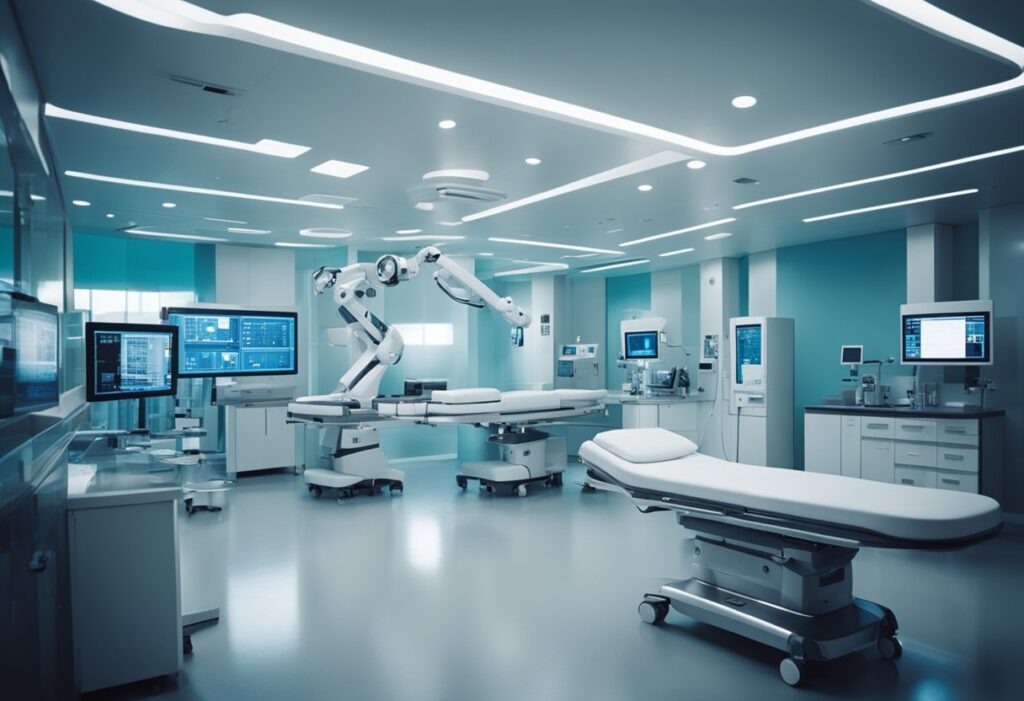
Biotechnology
In 2030, biotechnology will have advanced a lot. This will most certainly lead to the creation of new medical treatments and therapies.
Gene editing will become more precise, enabling the treatment of genetic disorders.
The development of personalized medicine will lead to the creation of tailored treatments for individuals based on their unique genetic makeup.
All of this will unfortunately happen (by 2030) only in the developed world. Most of the undeveloped world will still struggle with mediocre healthcare and many people will still struggle to get any kind of proper medical treatment.
Interesting fact: Global biotechnology market size is expected to reach $3.88 trillion by 2030.
Biomanufacturing
Biomanufacturing will change many aspects of medicine in 2030.
In modern societies, scientists will be able to create many human organs using 3D bioprinting technology.
This will eliminate the need for organ donors and reduce the risk of transplant rejection.
Additionally, biofacturing will enable the creation of synthetic blood and other medical products, reducing the reliance on traditional manufacturing methods.
Gene Modifications – CRISPR
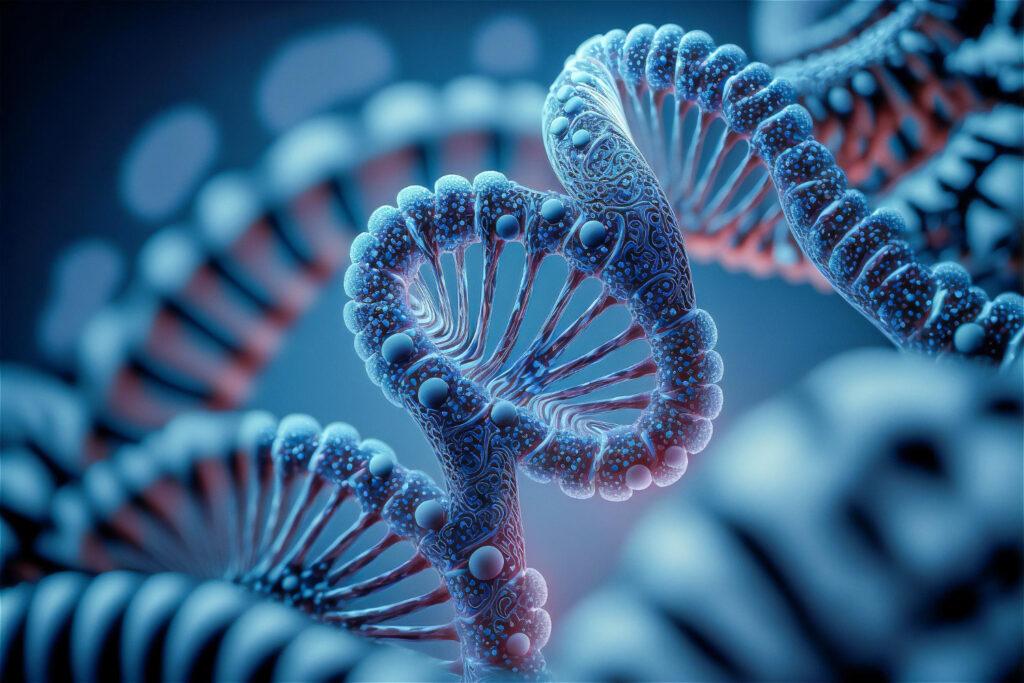
CRISPR technology will advance in the following years allowing for very precise gene editing.
This will enable the treatment of genetic disorders and the creation of genetically modified organisms.
However, there will also be many challenges with this technology.
As we’ve mentioned in numerous previous articles – gene editing could have profound implications for society or to be more specific – implications that will enhance inequalities between the rich/powerful and the rest of society.
Namely, rich and powerful could edit genes in a way that would make them invincible in several ways:
- Less diseases
- Becoming smarter
- Smarter and more developed children
- Strong offsprings
- Etc…
Interesting fact: Scientists have used gene modifications to create mosquitoes that are resistant to malaria, potentially reducing the spread of this deadly disease.
Education and Workforce in 2030
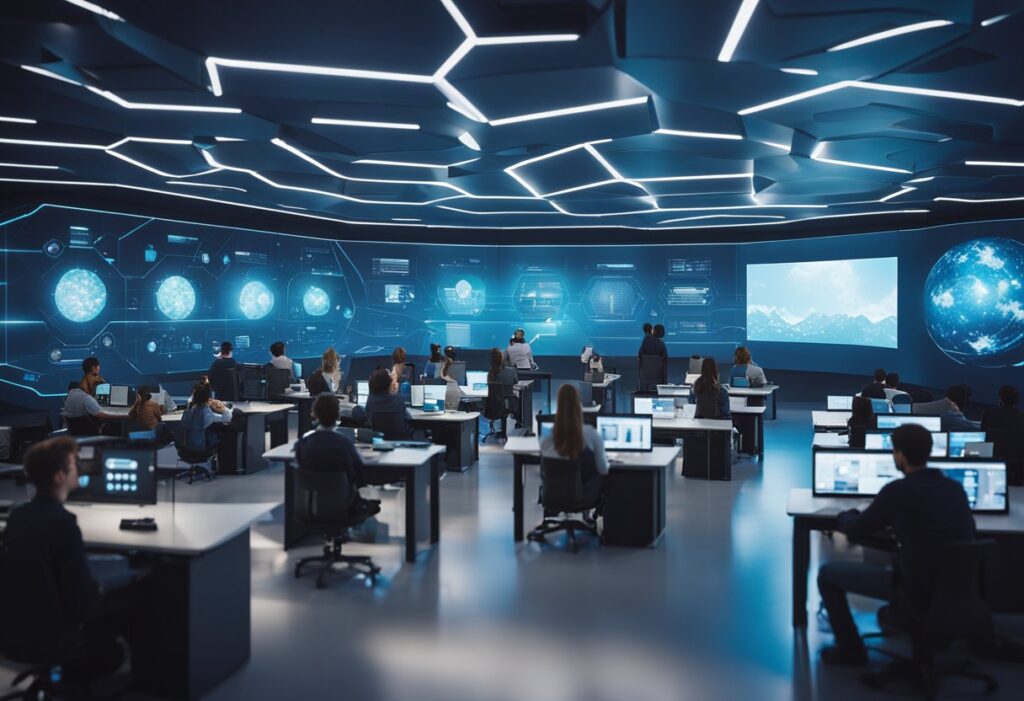
Online Education
In 2030, online education will become the norm. Again that is for the modern world and modern (and rich) education institutions.
80% of other institutions will continue the same way as it was before. Namely, as we’ve concluded in our article „History of Education System,“ formal education did not change for probably a hundred years.
Toilette paper is changing more rapidly.
However, future years will bring many changes, mostly because of technological advancement
Namely, with the advancements in technology, students will be able to access high-quality education from anywhere in the world.
Online education will be more interactive and engaging, with virtual reality and augmented reality technologies being integrated into the curriculum.
In many schools, the traditional classroom setup will be replaced by online classrooms, where students and teachers can interact in real time.
COVID gave us a sneak peek into that scenario.
Who knows perhaps this was just kind of a foreplay scenario for what’s to come.
Interesting fact: By 2030, it is estimated that the global e-learning market will reach $686,9 billion.
Job Market Changes
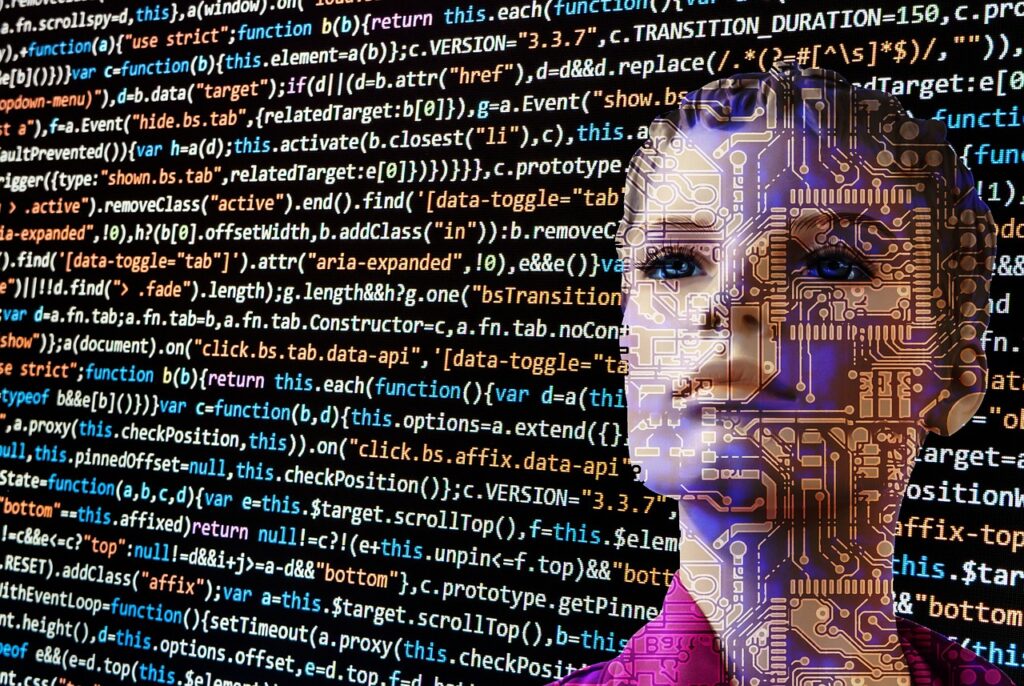
The job market will undergo massive changes by 2030.
Automation and artificial intelligence will replace many jobs that are currently done by humans.
However, as mentioned at the beginning of the article – the same will not happen with new jobs.
Not at the same pace at least.
Namely, while many new jobs will be created – this will not be enough for all the jobs lost.
Nonetheless, one thing is certain – there will be many jobs that never existed and jobs will be much more flexible.
The gig economy will continue to grow, with more people choosing to work for themselves rather than for traditional employers.
There will be even more so-called “influencers”, but most of them will not earn enough money.
This model, while enticing, will not work in the long run. Not in this economic end retirement model at least.
Namely, so-called “influencers” will not contribute to pension funds as traditional workers do. Therefore, the solidarity retirement model will need to be changed dramatically.
Okay, so we’ve already mentioned that there will be many new job titles that never existed before.
Let’s see what could those be.
Here are some examples:
- Work-from-Home Facilitator
- Fitness Commitment Counsellor
- Smart Home Design Manager
- Human-Machine Teaming Manager
- Algorithm Bias Auditor
- Cyber Calamity Forecaster
- Holoportation Worker
- Quantum Data Analyst
- Space Tourism Guide
- Climate Change Reversal Specialist
Interesting huh?
Hello, fellow Teleportation Workers! How was your day?
Social Changes
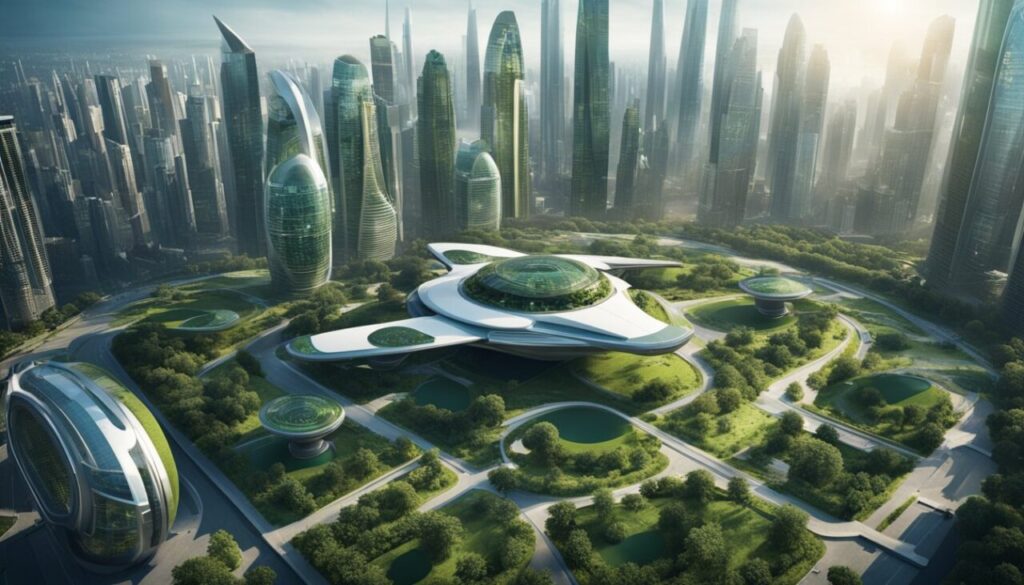
Urbanization
In 2030, urbanization will continue to be a major trend as more people move to cities in search of better job opportunities and a higher standard of living.
This will lead to an increase in the number of megacities worldwide, with over 40 cities expected to have a population of more than 10 million people by 2030.
With this increase in population density, cities will need to become smarter and more sustainable to accommodate the growing number of people living in them.
Many ultra-smart and futuristic cities will be finished by 2030.
We’ve written about those in our article „Top 5 Most Futuristic Cities Around The World“.
Interesting fact: By 2030, it is estimated that over 60% of the world's population will be living in cities.
Love Life in 2030
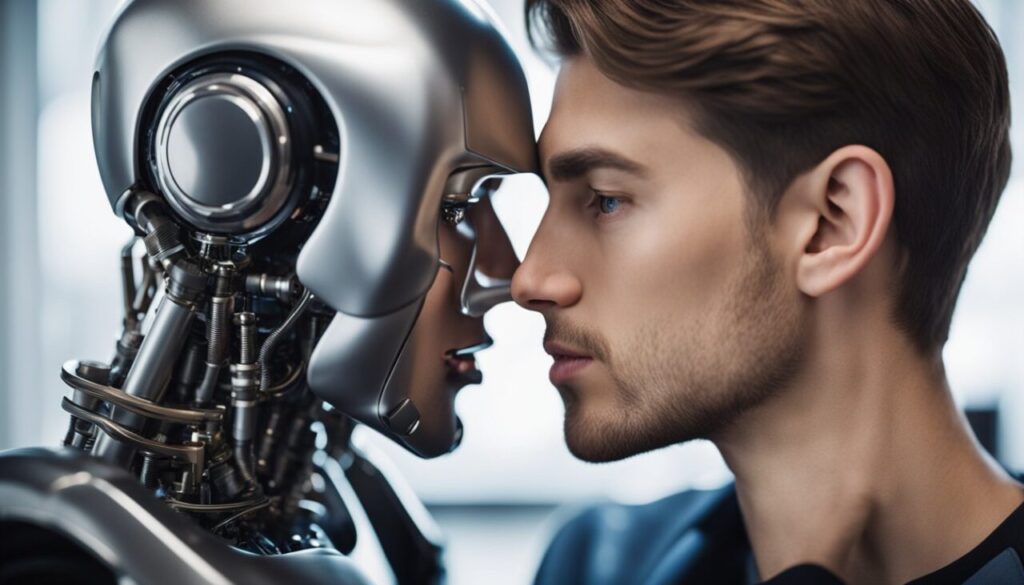
We’ve already touched briefly on this topic while mentioning virtual reality.
Namely, the way people approach relationships and dating will undergo significant changes in 2030.
For the worse probably.
In the real physical world, people will be even more disconnected. Many people will spend their whole days using different virtual reality devices.
Love and relationships, especially in the young population, will be drastically different.
There will be even more applications and ways to find partners online.
This will lead to a shift away from traditional dating norms and more towards a tech-driven approach to finding love.
The other thing that will be problematic is the rise of virtual companions. Already today many young people have tried some kind of virtual love companion (basically a chatbot with a 3d face).
However, those technologies will be much better and more realistic by 2030, and this will lead to many people using them in a similar way as Joaquin Phoenix in the movie Her.
In this movie, Joaquin Phoenix’s character, Theodore Twombly, falls in love with an artificial intelligence operating system named Samantha, voiced by Scarlett Johansson.
Good for Twombly, but in the real world this will most likely not be a positive step for society.
However, it will probably happen. Especially keeping in mind that loneliness is increasing in the world.
Therefore, many people would give a small fortune to have some kind of virtual girlfriend or boyfriend.
Interesting fact: Virtual Reality (VR) and Augmented Reality (AR) have the potential to deliver a £1.4 trillion boost to the global economy by 2030.
Transportation
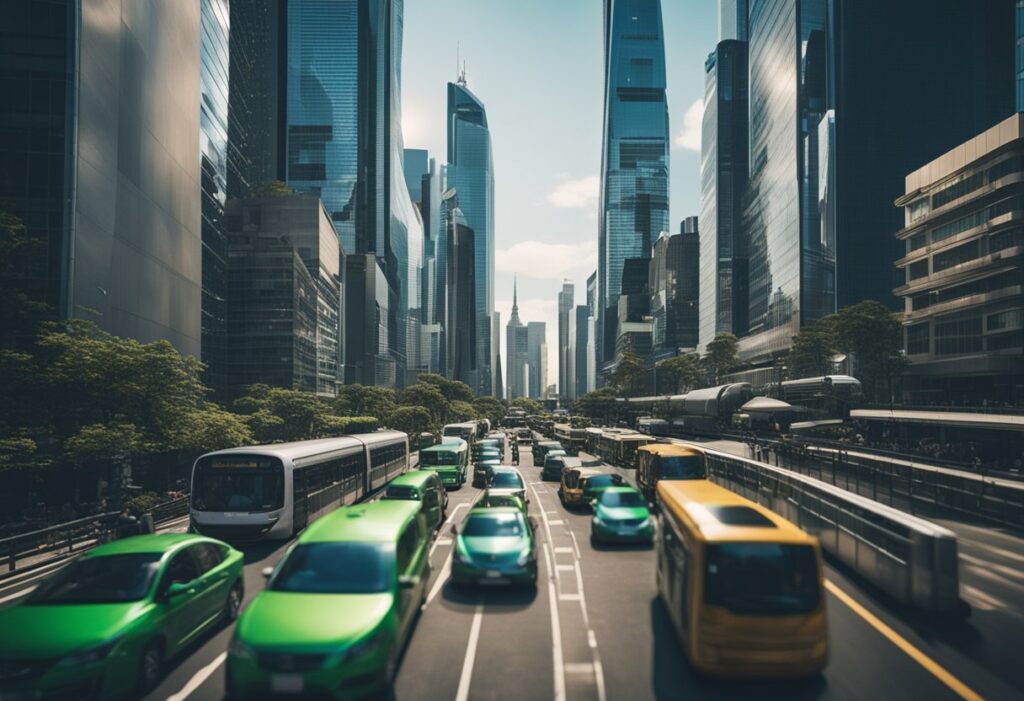
Transportation in 2030 will be much more advanced than today.
The development of autonomous vehicles will change the way people travel.
Public transportation will also be improved, with the integration of smart technology to optimize routes and schedules.
High-speed trains and hyperloops will provide faster and more sustainable transportation options for longer distances.
Also, it is expected that several cities around the world will have so-called robotaxies.
Interesting fact: By 2030, it is predicted that 15% of new cars sold will be fully autonomous.
Space Utilization

Commercial Space Travel
By 2030, commercial space travel will probably have become more accessible and affordable to the general public.
Space tourism will start to become a lucrative industry, with more companies offering trips to space.
The cost of a space trip will have gone down significantly, making it possible for more people to experience the thrill of space travel.
Still, the middle class will still not be able to afford space travel of any kind. But semi-rich people will probably have this opportunity by 2030.
In addition to tourism, commercial space travel will also be used for other purposes such as satellite launches, cargo transportation, and scientific research.
Private companies will work even more with government agencies to develop new technologies that will make space travel more efficient and cost-effective.
Space Resource Exploitation
As technology continues to advance, some kind of mini space resource exploitation will become a reality.
By 2030, there will be increased efforts to mine resources such as water, minerals, and metals from asteroids and other celestial bodies.
In addition to mining resources, space will also be used for energy production.
Solar power satellites will be most likely launched into space to collect energy from the sun and transmit it back to Earth. This will provide a clean and renewable source of energy that can be used to power homes and businesses.
Interesting fact: The European Space Agency began the SOLARIS initiative to assess the concept's practicability and mature the tech needed to make it commercially viable — its goal is to launch a demonstrator satellite in 2030, followed by a pilot solar power plant in 2035 and a commercial-scale plant in 2040.
Conclusion

In conclusion, 2030 will be a year of significant technological advancements and changes in daily life.
With the rise of artificial intelligence, robotics, and automation, there will be a shift in the job market, with many jobs becoming obsolete and new ones emerging.
The economy will also be affected by these changes, with companies investing heavily in technology to stay competitive.
There is a potential for conflicts and wars, especially with the increasing tension between major world powers.
Many changes will happen in how people interact with each other. More and more people will become lonely. This will lead to increased usage of virtual reality and virtual love companions.
And while some of our predictions may sound dystopian and negative, we’re certain that we’ll witness great progress by the year 2030 and that overall people will live happier and more fulfilled lives.
At least that’s our hope and desire.




























